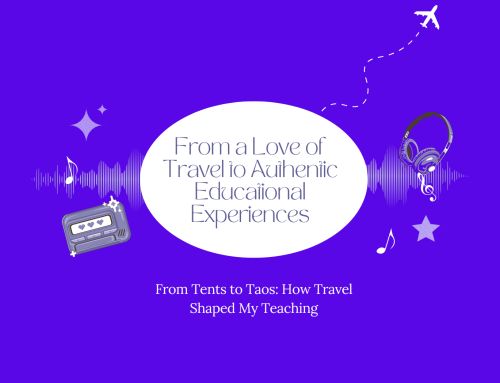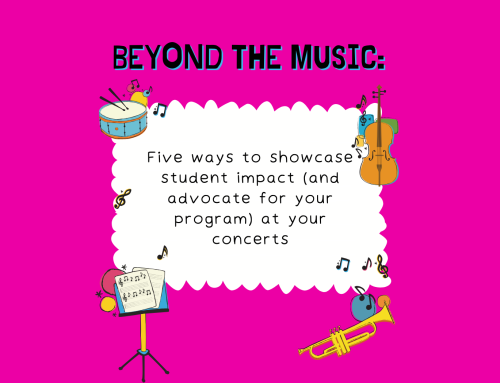This post was prompted by my recent observation in an exchange of text messages with a friend that I earned more from giving one presentation at the 2020 first annual F-FLAT Books Back to School Symposium than from royalty payments all of last year with Routledge (with whom I have published six books to date). I realized upon checking my facts that actually the $90 FABSS presenter’s fee was marginally over half my 2019 royalty earnings from Routledge, but I think the point still works rhetorically.
It is, of course, quite unusual for academics to receive monetary compensation for presenting at symposia – unless they are keynote speakers (I was not in this instance) – but F-Flat was able to honor presenters’ time with an honorarium, which was rather nice. I do not have any expectations that I should earn money from presentations or from scholarly books; that’s not why I write monographs or edit collections. Writing is fun and a privilege, and I take very seriously the responsibility of putting my own and others’ ideas in the public domain (insofar as the eye-wateringly high price and almost total invisibility of the majority of my publications makes them in any way “available” to the general public).
I do not believe the books I have published are especially great, or that I truly deserve payment for producing them. I feel fortunate to have been allowed to release any of my jumbled epiphanies into the world. And honestly, before reading anything of mine, I would urge anyone to read hundreds – thousands – of other, far more engaging texts (along with one or two of my blog posts; those can be fun). Furthermore, I know precious little about the business models of publishing houses, so what follows is a wholly uninformed, stream-of-consciousness response to my bafflement at a world in which I frequently feel like a mad [1] passenger.
Scholarship / trade press
A striking difference between trade press and academic publishers (from my limited experience, anyway) is the disparity in respective rigorousness of gatekeeping relative to distribution, marketing, and reach. I first had an article published in an academic journal in 2006 and was prepared for, although still stung by, the arduous process of peer review. It is an ordeal that without fail improves my work. It is in the book proposal process, though, that academic publishers present the highest of hurdles to hop. Between series editor, commissioning editor, proposal committee, and peer reviewers of the proposal, there are quality controllers aplenty. And these come only after completion of the roughly 2,000- to 3,000-word written proposal, which must include an up to date list of potential rival books in the marketplace and a detailed description of the perceived need (gap in the market) for the suggested volume. Being awarded a book contract by ______ University Press or ____ & ____ always feels like an achievement.
The rub comes when academic publishers begin marketing. For example, here is audio secretly recorded at a recent strategic meeting of the marketing team for _________ Press. And here is actual footage of a member of the marketing team from one of the world’s leading academic publishers, rushing my most recent book to market and ensuring multi-channel visibility and search-engine optimization across browsers.
In the trade press world, everything is the other way around. When I wrote a monthly column for a UK drummers’ magazine from 2012 to 2014, the entire process ran like this: an acquaintance vouched for me to get the gig, I wrote and submitted 1,500 words each month one week before printing, the deputy editor sometimes (but by no means always) checked I really meant what I’d said, and then it appeared, typeset, with photos and was (part of a periodical, presumably pieces of which were) consumed online and in print by thousands of drummers nationwide and around the world. The magazine was on display to purchase from music stores, newsagents, and websites.
I have never had a book published by a popular press. Apparently, one needs an agent for that. Getting one of those sounds like a nightmare, so my introversion leads me back time and again to my comfort zone and the solitary pursuit of the scholarly book proposal. (Although I once self-published this book of illustrated limericks that six very discerning consumers have since purchased.) I guess trade press stuff is presumed to have a short shelf-life, and publishers want a quick return on their investment in a relatively disposable commodity item. In contrast, academic writing is intended to be more or less perennial (#musicpedagogyfortheages).
Royalty payments
I’m not even sure I agree with authors getting royalties for things we’ve written, or the notion of copyright at all, really. Intellectual property should probably be a thing, and likely deserves some kind of acknowledgment, I feel (today), but I understand as well as the next author that nothing exists in a vacuum. I often say, entirely seriously, that I have never had an original idea – as a writer, drummer, or songwriter. My writing can only be perceived as relatively “good” if it’s comparable to and therefore about 90% similar to the stuff that surrounds it; my drumming only works if it’s exactly what you’d expect to hear, or a tiny bit what you wouldn’t, but if I’m surprising you, all I’ve done is bring something from somewhere else to a new context. All of my drumming anyway is me failing to be as good as Max Roach, Bill Bruford, John Bonham, or Carter Beauford, and as a writer, I’m just a poor man’s Henry Giroux or a wannabe Bill Bryson (and sometimes a horrifying hybrid of both/neither).
Folks certainly have made leaps and significant steps in thinking from time to time, and one idea may resonate for longer than another for all manner of reasons that might even include some inherent merit. I’m just not convinced that these things ever warrant a lifetime of me or anyone else being paid for, say, a chipper tune, a re-combination of others’ thoughts, or a striking turn of phrase. Don’t get me wrong – I absolutely want what I’m owed, and I very much want to be owed more than I am, but it all feels terribly disingenuous somehow. Then I see the office buildings of major publishers in Manhattan and London, recall that I moved my family to the inconvenience, beauty and SUV-tastic calm of the countryside because we could afford the down-payment, and I wonder whether there might be what feels to me like a fairer trade (i.e. one that’s not remotely fair, but in which I can afford, say, a modest yacht and a small urban apartment).
Statistically speaking, approximately no one does well from making things. Spotify is roughly 99% full of music that nobody ever hears, and things have ever been thus for creators. Nothing is created in a vacuum, but once “released”, most of it disappears into a black hole.
My feelings about royalty payments are influenced by my social hangups and musical shortcomings as a drummer. Have you heard this one before?
- What’s the difference between a drummer and a pizza? A pizza can feed a family of four!
ROFL. But seriously, since what counts legally as a song are lyrics and melody, drummers traditionally have the same royalty-earning potential as your average cheese pie. And songwriting for the last 20+ years has become increasingly indistinguishable from producing-engineering-recording-composing-arranging (as my friend, Steve, describes here – and he often thinks of his songs as basically finished, even when they have no lyrics or melody yet!). Hence, the whole game seems nuts to me.
I’m not sure I’d rather everything people make was available for free either. Sometimes I would, but of course, that would require a radically different kind of socio-economic system from today’s runaway neoliberal capitalism. Mostly I just don’t like the pretense of meritocracy – the notion the best stuff will do well and everything else remains in its shadow. This premise ignores context, panders to mass markets and commercialism, and makes me sound like I agree with Adorno. (Shit, how did that happen?) It’s also kind of exciting. I mean, what if something I made actually did well? Wouldn’t that then mean that the thing was really good after all, or that I am terribly good at making things?
Anyway…
Jarvis Cocker once sang, “they say the cream rises, but I say shit floats”. I don’t entirely believe this, and things are never quite that straightforward, of course, but he’s a funny guy and wiser than I’ll ever be. No one’s making me write books or sign contracts or expect royalties, but I keep doing it all anyway. As Obi wan Kenobi once sagely asked “who’s more of a fool – the fool, or the fool who follows him?” This, apparently, is the road I am traveling. When I’m next generously granted another 1.5% royalty share on a co-edited book and told that’s the best the publisher can do for me, and when I get the next annual cheque for < $179 for the six books I sweated blood for and lost sleep over for years, and I have to look my wife and daughter in the eye and tell them it was worth all that missed time together, I will feel like a massive asshole. I WANT MORE ROYALTIES!
As of two months ago, I have a full-time job as an academic (HURRAH!!!), which means I get paid to write books and stuff anyway. So why on earth would I want royalties too? Isn’t that just plain greedy?! And shouldn’t a share of any royalties I do earn now go to Boston University since they are providing me with the space and time to be creative? But then most of my writing to date was done on my own time (whatever that is). Ugh, I need a cup of tea.
[1] In the British sense. I mean, I feel crazy, but deploying that word would have ruined the flow of the sentence.
What do you think? Should authors expect more royalties? Who SHOULD get paid (if anyone) when it comes to intellectual property? Share your thoughts in the comments below




Leave A Comment